At the end of 2021, President Buhari signed Nigeria’s 2022 Federal Budget into law. It is a far cry from the early days of his administration when the government passed budgets four or five months into the year.
Beyond the timing of the budget approval, the numbers are also eye-catching. The Federal Government plans to spend ₦17 trillion from earnings of ₦11 trillion in 2022.
Some takeaways:
- The government is spending far less than its peers if you factor in GDP. South Africa budgeted $25 billion for just education in 2021, while Nigeria plans to spend $40 billion as its entire 2022 budget.
- In 2020 the Nigerian government made ₦4.3 trillion in revenue and spent ₦4.2 trillion on debt service.
- The budget deficit keeps widening each year as the government expenses keep growing faster than revenue, leading to a potential debt crisis.
₦17 trillion sounds like a lot of money (slightly more than is in my account), which is true in some sense. ₦17 trillion is roughly $40 billion—less than Nigeria’s pre-pandemic oil export earnings. Moreover, South Africa budgeted over $25 billion for education-related expenditure in 2021. For an even stronger contrast, consider that Nigeria’s 2022 budget is smaller than what the United Kingdom (UK) plans to spend on public order and safety this year (roughly $55 billion).
The UK is a much larger economy, so you would expect them to spend more. But even when we account for GDP, Nigeria’s budget is equivalent to 9% of its GDP, smaller than most of its peers. The chart below shows general government spending as a percentage of GDP across peer countries—notice how Nigeria lags behind others.
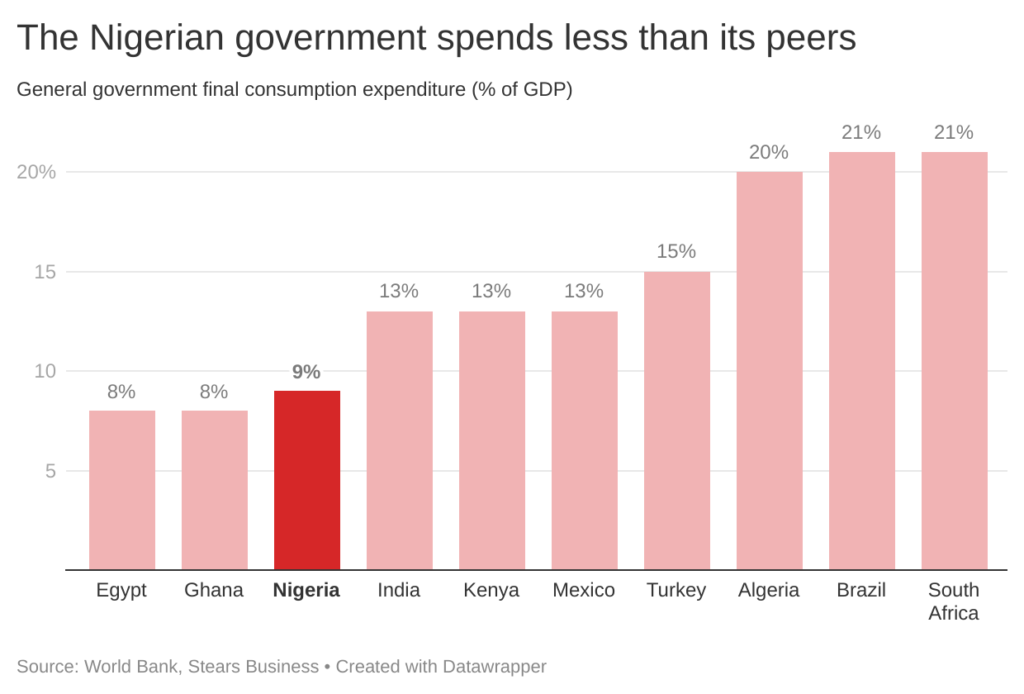
The story above vindicates the Federal Government’s expansionary fiscal policy (higher spending). But this story is a lie. The government’s expenditure has gotten out of hand by all reasonable measures, and we should all be very worried.
Spend, spend, spend
Nigeria’s budget has blown up in the last seven years. The Federal Government’s budget tripled between 2015 (the last pre-Buhari budget) and 2022.
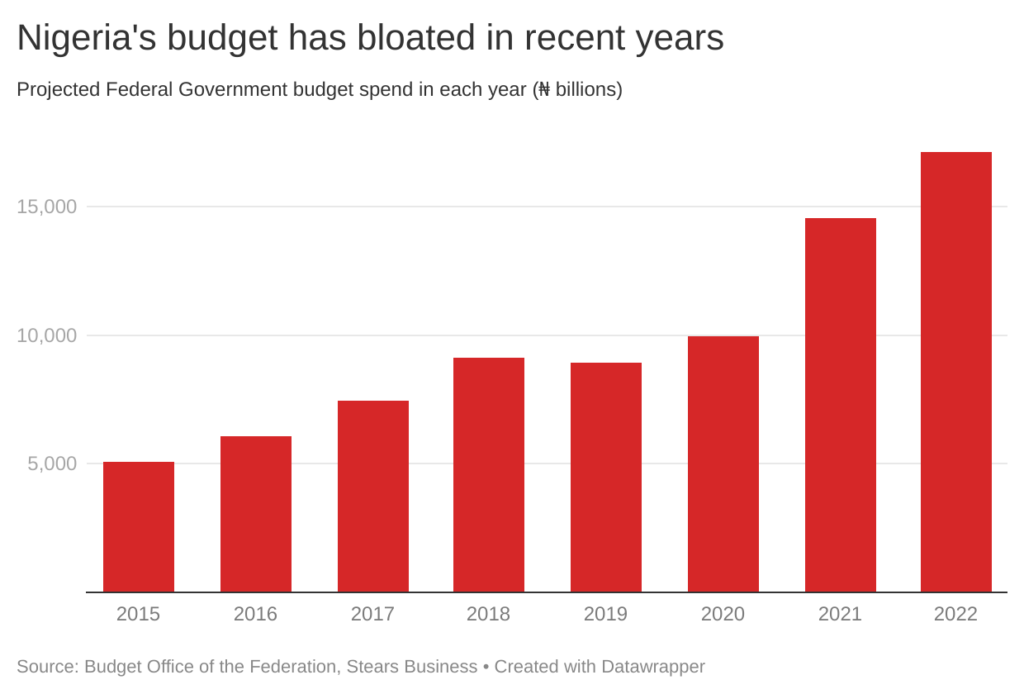
When it comes to actual spending, the story is the same. The government has gone from spending ₦4.4 trillion in 2016 to spending ₦13.7 trillion in 2021. (For those wondering, the budget’s projected figures tend to differ from the actual figures at the end of the year).
Another way to look at the budget bloat is by analysing the budget spend per head.
To do this, we divide by population figures. These figures are highly controversial in Nigeria, and as we know, we don’t know how many Nigerians there are. Still, the last available National Bureau of Statistics (NBS) estimates pinned our population growth rate at 3.2% a year, so we have used that in this analysis. If you are worried about the accuracy of these figures, consider this: if anything, it’s more likely that our population growth rate is overestimated as states are incentivised to bloat their numbers. Since we are dividing by these overestimated numbers, the final results we get are a best-case scenario.
So, what’s the trend?
In 2016, the Federal Government planned to spend ₦31,300 for each Nigerian. That has more than doubled to ₦73,300 in 2022.
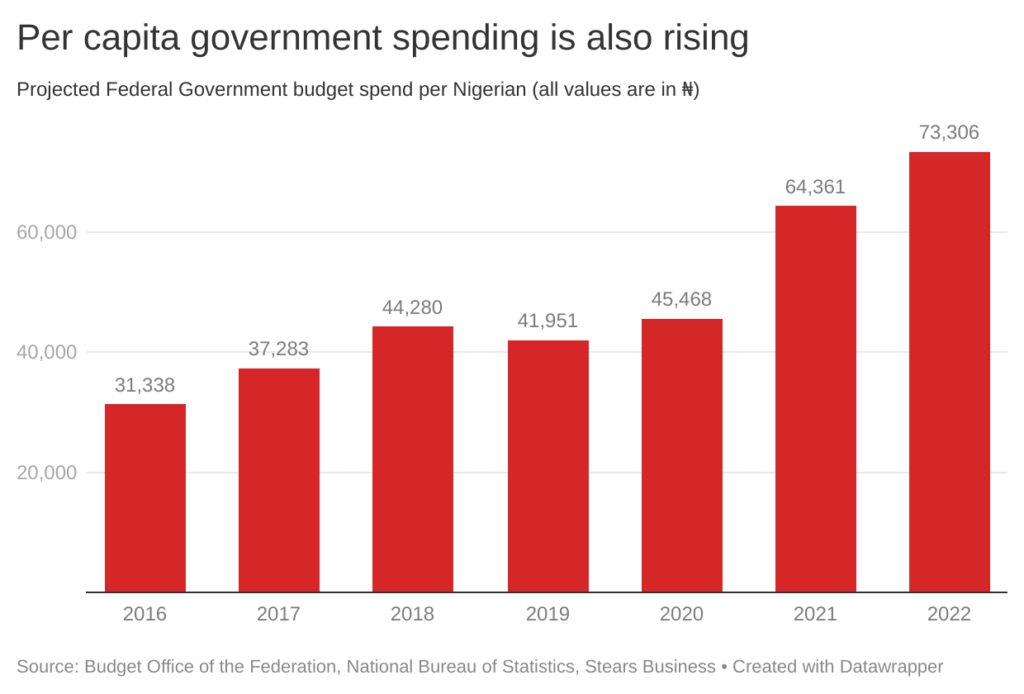
In absolute and per capita terms, Nigeria’s budget has grown significantly within a decade.
The government is spending a lot more, however you look at it
Of course, comparing Nigeria’s spending over time like this is misleading when you consider how much inflation and currency devaluation we have experienced within this period. But even after accounting for these, Nigeria’s budget is growing beyond measure. For example, the projected budget expenditure has changed in dollar terms. Notice that the dollar value of the budget has doubled between 2017 and 2022.
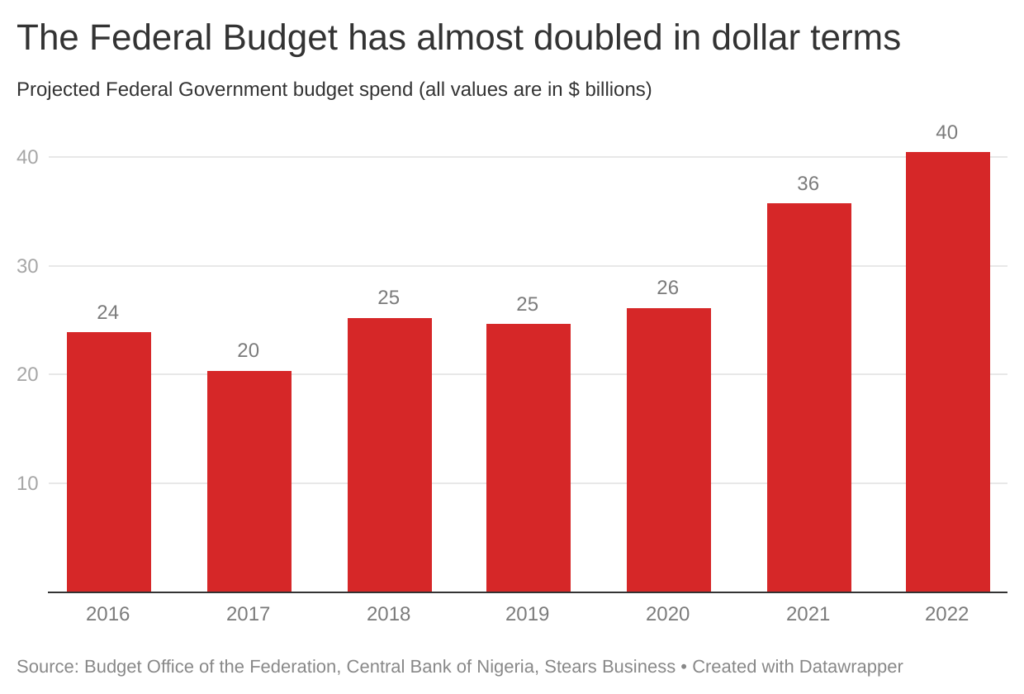
And if we adjust the budget for inflation, it is still rising, as the chart below shows.
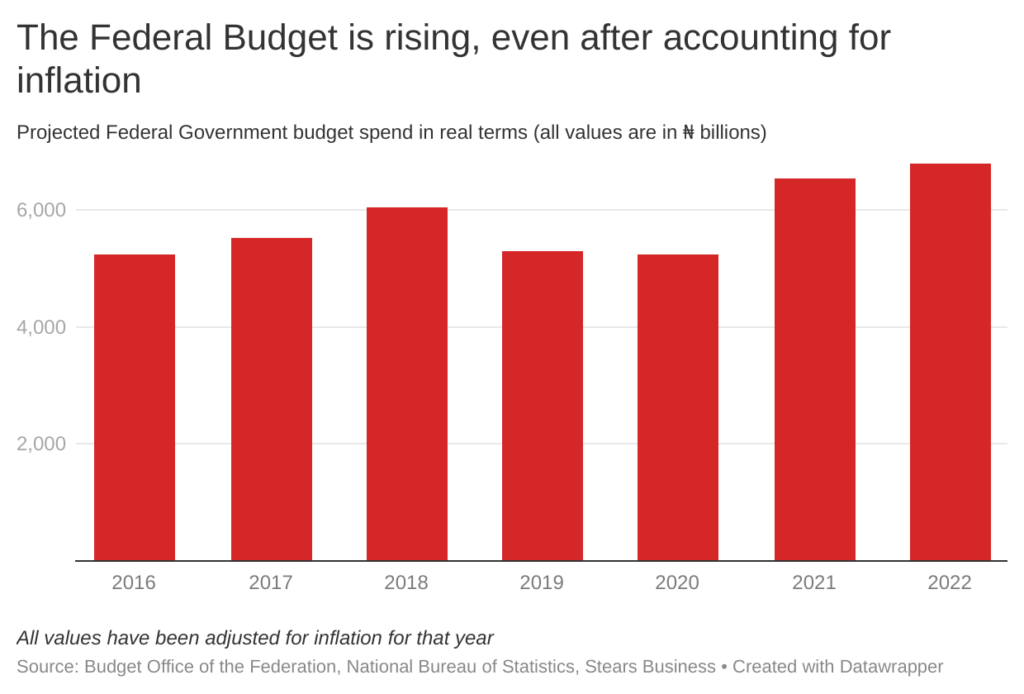
More spending, more debt, more wahala
I have saved the best for last. As I highlighted earlier, the ₦17 trillion the Federal Government has announced is a projection. Actual spending and revenues will differ, sometimes quite significantly.
This is where Nigeria is most guilty because we tend to hit (or come close to) our spending targets and fall way short of revenues. The chart below shows the budget performance of expenditure and revenue each year. A 100% value means that the budget target (whether expenditure or revenue) was met and anything below means the government fell short.
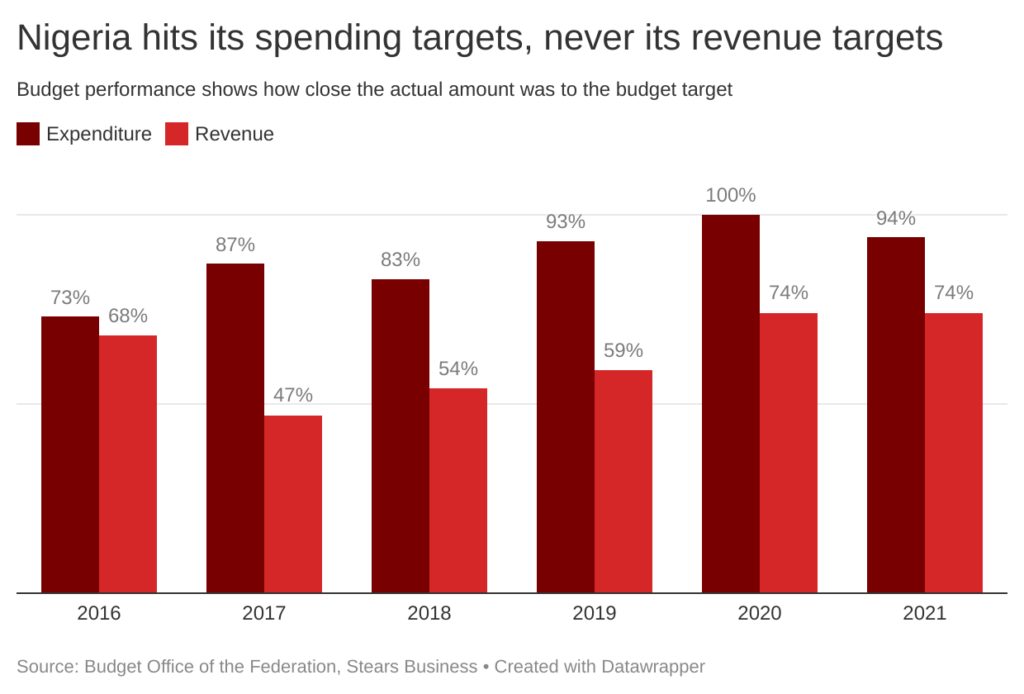
This is the biggest evidence of how much spending has increased in the last seven years. Actual Federal Government spending has risen from ₦4.4 trillion in 2016 to ₦13.7 trillion in 2021 (a threefold increase), while actual revenue has grown from ₦2.6 trillion in 2016 to ₦6 trillion in 2021 (a twofold increase). This may not sound like a big deal, but over those six years, it means that Nigeria’s actual deficit rose from ₦1.8 trillion in 2016 to ₦7.7 trillion in 2021. For those readers that did not spot it: in 2021, the Nigerian government spent more than twice as much as it earned.
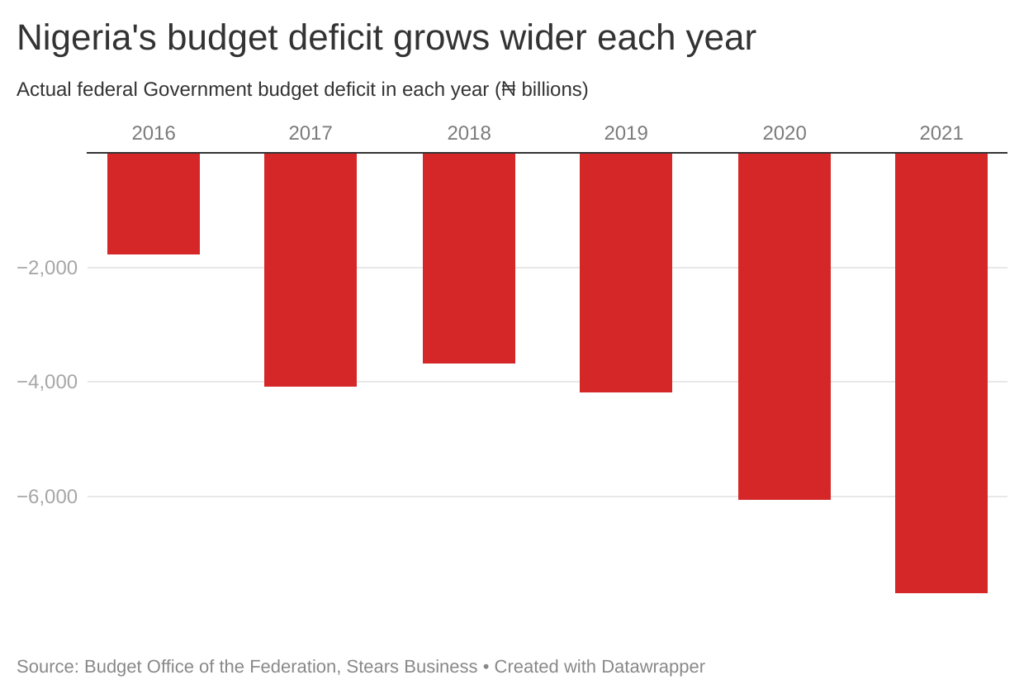
The chart above is super important. In simple terms, it tells us that the government is living above its means more and more each year. If the gap between what the government spends and earns increases each year, you are going to find yourself in a debt crisis.
No surprise then that in 2021, nearly 100% of Federal Government revenues went to paying debt. Of the ₦4.3 trillion raised, ₦4.2 trillion went to debt service. Incredibly, that 2021 debt service figure is almost equivalent to the total amount the Federal Government spent on everything in 2016 (₦4.3 trillion).
The summary is that any way you slice it, the government is spending a lot more each year, and the gap to its earnings is just widening.
Who does all this spending help?
Of course, this does not have to be a problem if government spending is efficient and generating results. Those who advocate for more government spending rightfully highlight the need for spending in Nigeria, whether to kickstart an economy that has suffered two recessions in a decade or upgrade Nigeria’s inadequate infrastructure. The country’s infrastructure stock was last measured at 35% of GDP in 2012, compared to 58% in India and 87% in South Africa.
Combine these justifications with standard economic theory, which states that government spending can have a multiplier effect, where 1 naira of government spending generates more than 1 naira worth of value for the economy. Then one could argue that the extraordinary rise in Nigeria’s government spending is a good thing.
But only if government spending is efficient.
Assessing the efficiency and effectiveness of government spending can be very subjective and highly political. So, here’s international data that suggests we should be wary when the Nigerian government goes on a spending spree. In 2018, the World Economic Forum ran a global survey of business executives to gauge the efficiency of government spending. The survey covered 136 countries. Nigeria ranked 120th, below Pakistan, Bulgaria, and Honduras, none of which are considered bastions of public efficiency.
Many Nigerians will bury their heads in the sand and declare that the government’s spending is necessary and efficient, rather than reckless and exorbitant. But they cannot dispute how quickly—and by how much—government spending has risen, with revenues lagging way behind.
At this rate, the Federal Government of Nigeria will budget a record ₦20 trillion in 2023. An impressive feat for a country that has gone broke.














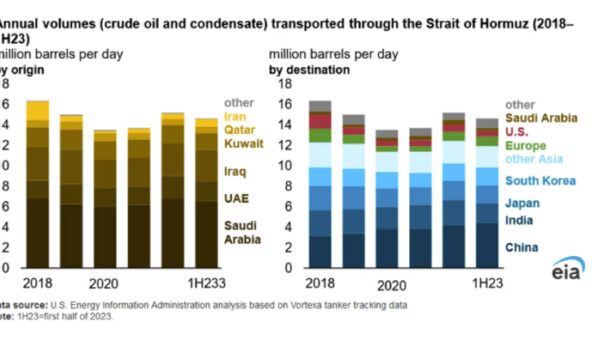





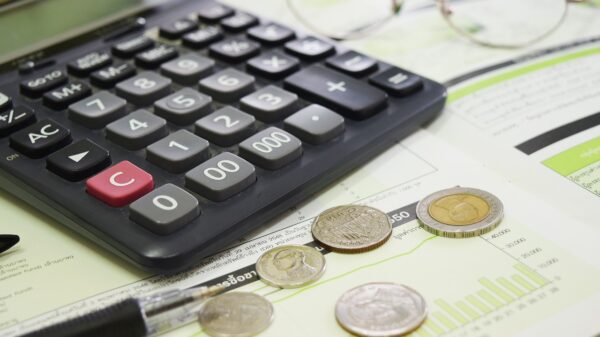
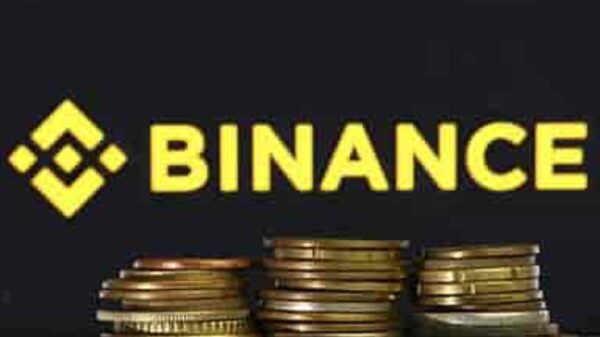





























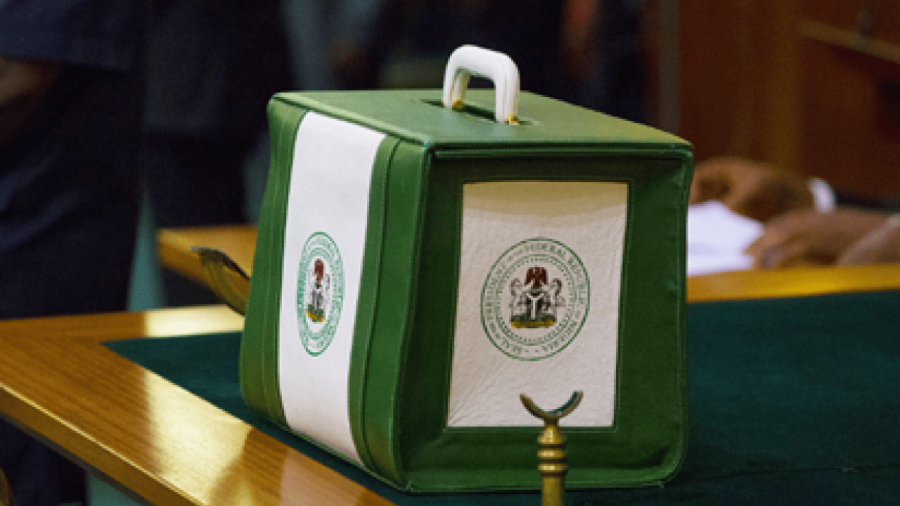
You must be logged in to post a comment Login